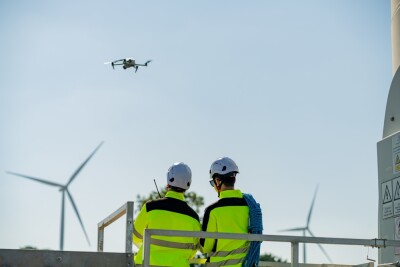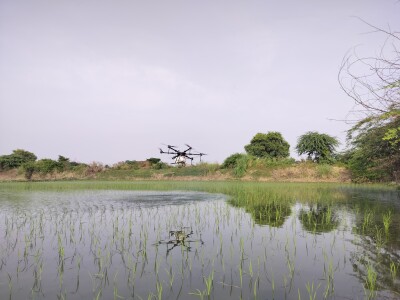The worlds of manned and unmanned aviation are rapidly approaching a time when they will be sharing the National Airspace (NAS). Unfortunately, the safety standards within each industry are very different and when lives are at stake, we can’t and shouldn’t compromise. Drone operators and manufacturers might be the “new kids on the block”, but their safety standards must be strengthened to get closer to manned aviation established principles.
As this evolution unfolds, companies that have strong footholds in manned aviation are finding interesting synergies with companies in the commercial UAV space. Such alliances are making this transition of the airspace a lot easier for everyone, and that's something you can clearly see with the announcement that Vertical Partners West (VPW) and Teledyne Energy Systems Inc. (TESI) have signed a collaborative agreement. Their alliance will allow both companies to better serve the power needs in the emerging and rapidly growing unmanned, robotic and mission-critical portable power market.VPW, parent company of Venom Power, is a leading supplier of drone batteries and charging solutions for commercial industries. They're dedicated to solving the challenge of multiple drones and hundreds of batteries in a powerful way, but that's just part of the reason this collaboration is so significant. As part of the agreement, TESI will support a wide variety of VPW’s complex energy projects. Vertical Partners West will expand its product offerings to include TESI’s current and future developed energy system technologies. Gien TESI's position as a technology leader in the fields of electrolytic, thermoelectric, battery and fuel cell systems, it's evident what kind of opportunities are going to be opened up.“By combining Vertical Partners West’s market and distribution strength with Teledyne Energy Systems’ technology and ability to offer challenging energy solutions we will be able to raise the level of operational performance and provide a trusted source for unmanned energy requirements,” said Mitch Icard, Teledyne Energy Systems’ Vice President and General Manager.VPW has been servicing the US battery market since 2001 with its Venom Power branded line of commercial, UAS batteries, charging, and battery management systems. However, they've also developed OEM batteries for other commercial and UAS applications. TESI has been a trusted energy provider for mission-critical applications in the commercial, defense and space industries since 1968. Through this agreement between TESI and Vertical Partners West, customers will receive world-class engineering, cutting-edge technologies, and customer service.We reached out to Keith Wallace, CEO of Vertical Partners West for some exclusive comments about the collaboration with TESI.“Teledyne Energy Systems has been at the forefront of technology for 50 years," Wallace told Commercial UAV News. "Their work in providing innovative power solutions for the most demanding conditions is legendary. Collaborating with such a trusted partner allows us to offer our customers an unparalleled experience and access to technology not normally accessible to the general public. As our customers’ requirements become more and more complex we are excited to be able to work closely with Teledyne to offer aerospace grade solutions for their mission-critical needs.”Together, the two companies will deliver high-value solutions for large-scale operators looking to develop battery, fuel cell or hybrid energy systems. These systems will include charging and fuel development systems allowing for a complete end-to-end solution. This level of engineering was not previously available from a single supplier. This direct approach provides customers with a highly integrated system engineered specifically for their application.“All our current projects with TESI involve autonomous vehicles in one way or another and we wanted to bring technological innovations to the UAV community using the same design process and engineering expertise used for spacecraft, and manned aviation projects," Wallace continued. "This will yield a much higher degree of reliability, performance and safety. The collaboration strives at taking advantage of both our companies’ strengths and provide them to commercial drone operators. We have a responsibility to the future of commercial drone use by increasing the safety standards and making sure that the inevitable merge of manned and unmanned aviation in controlled airspace is safe and seamless.”Subscribe
The information you submit will be stored and used to communicate with you about your interest in Commercial UAV News. To understand more about how we use and store information, please refer to our privacy policy.
July 12, 2019
Teledyne Energy Systems and Vertical Partners West (VPW) Enter Agreement














Comments